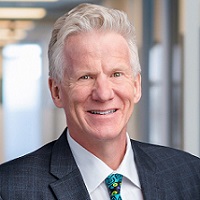 By Nick van Terheyden aka Dr Nick, Principal, ECG Management Consulting
By Nick van Terheyden aka Dr Nick, Principal, ECG Management Consulting
Twitter: @drnic1
Host of Healthcare Upside Down – #HCupsidedown
The “Oxford Handbook of Clinical Medicine” was a godsend to junior doctors and experienced physicians alike. First published in 1985, it came in a pocket size—small enough to fit into the white coat of every doctor, crammed in next to the various other essentials we had to carry around.
The book was a great companion covering a wide range of topics in a succinct style. But like so many innovations, it received mixed responses at the time—including being banned by some medical schools for making medicine too easy.
Episode NOW on Demand
Today we’re seeing something similar with ChatGPT. For some, the artificial intelligence (AI) chatbot is a great gizmo that is ready to provide useful information and serve as a tool in our quest for knowledge—and in this case, help improve the delivery of healthcare. To others, it’s something to be feared, controlled, and even banned.
Let’s be clear—ChatGPT is not replacing humans anytime soon (at least not in the opinion of this host). But it is offering some major opportunities and leaps to our world, and certainly in some as yet undefined or untried ways.
Harvey Castro, MD, MBA, is an emergency physician and the author of the book “ChatGPT and Healthcare: The Key to the New Future of Medicine.” On the final installment of our series on ChatGPT, he explains how he’s incorporated the tool into almost everything he does—and how it can change the way providers care for and communicate with patients. Below are a few excerpts.
Advocating for AI.
“I feel like [ChatGPT] is a great assistant. I use it for brainstorming sessions. But the downside is that at the beginning, you don’t know what you don’t know. The more I used it, I started realizing certain answers it was making up didn’t quite sound correct. I have an MD and an MBA, and tons of experience in business. And I thought, there will be people asking a question who don’t have the background to know the answer is incorrect. So I thought, why not be in front of this technology? Why not advocate for it, explain the pros and cons, and just teach people? And that’s what I’ve been doing on social media [and in my] book.”
A tool to combat burnout?
“I’m so worried for our healthcare system. We see physicians burning out, great leaders wanting to leave medicine. I think we need these kinds of tools. For all the ones that are ready to retire, maybe this is where they can put their energy and create another product for all of us to enjoy as far as healthcare.”
How we can use the technology in healthcare today.
“I see AI divided into phases—pre-patient, patient, and post-patient. Pre-patient would be your education—doctors, physician assistants, and everyone in healthcare can [summarize] information they find complex and put it into ChatGPT. The patient phase: as an ER doctor at three in the morning when I’m exhausted, sometimes it’d be nice to be able to go into a database, input the symptoms, and get back something that says, ‘Have you considered the following disease?’ I think that’d be huge. Post-patient, I think it’d be great for patients to understand the discharge instructions. As an ER doctor, I might not speak the language that those discharge instructions should be in. How nice would it be able to create the diagnosis, and then extract another language and give that to the patient?”
This article was originally published on the ECG Management Consulting blog and is republished here with permission.
About the Show
The US spends more on healthcare per capita than any other country on the planet. So why don’t we have superior outcomes? Why haven’t the principles of capitalism prevailed? And why do American consumers have so much trouble accessing and paying for healthcare? Dive into these and other issues on Healthcare Upside/Down with ECG principal Dr. Nick van Terheyden and guest panelists as they discuss the upsides and downsides of healthcare in the US, and how to make the system work for everyone.
Tune in weekdays at 9am, 5pm, and 1am ET.
Join the conversation on Twitter at #HCupsidedown.
